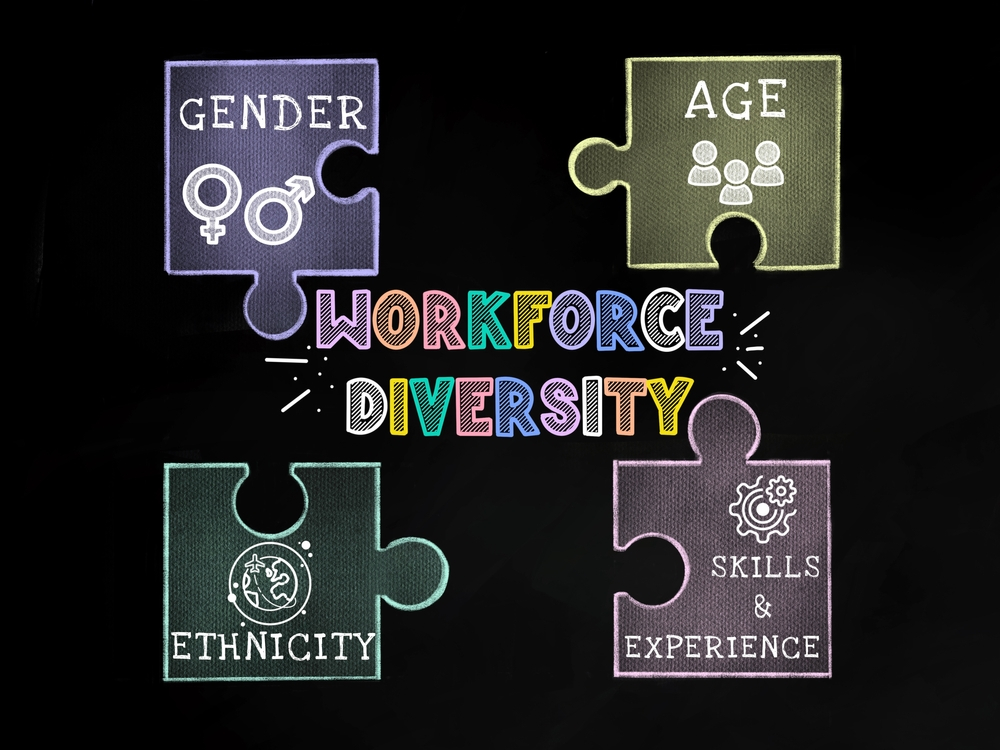Family-owned businesses serve as the backbone of our economy, embodying the entrepreneurial spirit while providing essential services and products. These entities face a unique set of challenges, especially when it comes to recruiting and retaining skilled employees.
Balancing familial and professional relationships, maintaining competitive advantage, and nurturing a conducive working environment are vital components in ensuring the longevity and success of family-run ventures.
While these businesses are often synonymous with trust and tradition, the ever-evolving market demands a constant infusion of new ideas, skills, and talents to stay afloat and thrive.
Delving Deeper: The Unique Challenges of Family-Owned Businesses

Family-owned businesses, with their distinctive blend of personal and professional realms, encounter distinct hurdles in sustaining a harmonious and productive atmosphere. Let’s dissect these challenges more thoroughly.
1. Navigating Familial Dynamics:
In family-owned enterprises, the intertwining of familial relationships and professional partnerships often brings a complex array of challenges. The seamless blending of these domains necessitates meticulous navigation to circumvent potential complications. The familial bonds involved can often disrupt objective decision-making processes, replacing merit-based considerations with familial preferences, leading to nepotism. This, in turn, can corrode employee morale, diminish productivity, and create a rift between family and non-family employees. Fostering a healthy, balanced environment, where professional and personal boundaries are respected, is crucial for maintaining harmony and ensuring the equitable treatment of all employees.
2. Retention of Non-Family Employees:
The apparent proclivity towards family members in family-owned businesses can often result in diminished job satisfaction and a sense of alienation among non-family employees. This perceived inequality can cultivate an environment of resentment and disillusionment, leading to increased employee turnover. It is imperative for family-owned businesses to cultivate an inclusive atmosphere where all employees, irrespective of their familial ties, feel valued, motivated, and fairly rewarded.
This inclusivity is not only central to retaining skilled staff but is also pivotal for fostering a sense of belonging and commitment among all employees, ensuring the long-term prosperity of the business.
3. Balancing Tradition and Innovation:
Tradition often serves as the foundation upon which many family businesses are built. It fosters a sense of identity, continuity, and values that can be a source of strength and guidance. However, an excessive focus on tradition can become a stumbling block, hampering adaptability and stifling innovation.
In today’s fast-paced, ever-evolving business landscape, the ability to adapt and innovate is no longer a luxury but a necessity. The reluctance to embrace new ideas and methodologies can hinder the attraction and retention of skilled, dynamic individuals who seek progressive, forward-thinking workplaces. Balancing the reverence for tradition with a passion for innovation is crucial for the continuous growth and relevance of family-owned enterprises in the modern business ecosystem.
4. Competitive Compensation and Benefits:
Operating often with constrained resources, family businesses find it challenging to offer competitive compensation and benefits. This limitation affects their capacity to attract and retain high-caliber talent, who may gravitate towards larger corporations offering more lucrative packages and career prospects.
To mitigate this, family-owned businesses must explore innovative, sustainable solutions to enhance their compensation structures, such as offering performance-based incentives, flexible working conditions, and opportunities for professional development. By doing so, they can create a compelling value proposition for prospective employees, leveling the playing field in the war for talent.
You can aslo read this article Strategies for Harmonious Family Business Management and Growth
Navigating Success: Strategies for Overcoming Challenges in Family-Owned Businesses

Family-owned businesses, with their unique combination of personal and professional intricacies, necessitate the implementation of strategic solutions to overcome inherent challenges and foster a conducive working environment. Below are strategies that can be instrumental in addressing the specific challenges faced by family-run enterprises.
1. Embrace Meritocracy:
To build a prosperous and equitable working environment, the promotion of a merit-based culture is paramount. When recognition and rewards are strictly based on an employee’s contributions and skills, it paves the way for fairness and equality within the workplace. This, in turn, enhances employee satisfaction and fortifies employee retention, creating a mutually beneficial relationship between the business and its workforce. The intrinsic value of meritocracy lies in its ability to promote excellence and drive employees to reach their full potential, which is crucial for the long-term success of any business entity, especially those intertwined with familial bonds.
2. Implement Transparent Communication:
Transparent, clear, and open communication is the bedrock of any harmonious working environment. By fostering a culture where thoughts, concerns, and ideas are freely exchanged, family businesses can mitigate misunderstandings and conflicts that may arise between family and non-family employees. This inclusive communication approach not only promotes cohesion but also encourages the mutual respect and understanding necessary for cultivating a harmonious and productive workplace. Moreover, clear and candid communication bridges gaps and builds stronger, more resilient relationships, essential for the stability and growth of family-owned enterprises.
3. Foster Professional Development:
Investing in the professional development of employees is a strategic investment in the future of the business. By providing ample training and development opportunities, family-owned businesses enable employees to hone their skills and expand their knowledge base. This not only enhances the overall competitiveness and productivity of the business but also aids in employee retention by demonstrating the company’s commitment to career advancement. An atmosphere that encourages learning and growth is attractive to skilled professionals and contributes to the cultivation of a knowledgeable and competent workforce, ready to navigate the ever-evolving business landscape.
4. Offer Competitive Compensation:
In the competitive business environment, offering attractive compensation and benefits is crucial for attracting and retaining top talents. Family-owned businesses, therefore, must endeavor to provide competitive salary packages and benefits that align with or surpass industry standards. Incorporating performance-based incentives can further motivate employees to excel in their respective roles, driving the business forward. A well-structured and competitive compensation strategy not only attracts skilled professionals but also fosters loyalty and job satisfaction among existing employees.
You can aslo read this article Strategies for Managing Risks of Family Conflicts in Family-Owned Businesses
Embracing the Future: Leveraging Technology and Innovation in Family-Owned Businesses
In today’s dynamic and rapidly evolving business landscape, Family-Owned Businesses must pivot and adapt by embracing technological advancements and cultivating innovation. By integrating digital platforms into their operational fabric, these businesses can optimize recruitment processes, deepen employee engagement, and facilitate continuous skill development. These technologies act as catalysts, streamlining operations, bolstering productivity, and ensuring that businesses stay attuned to the evolving market demands.
The adoption of modern management practices is equally vital, serving to modernize the organizational structure and approach, making the business more appealing to skilled and dynamic individuals seeking progressive and adaptive work environments. Moreover, fostering a culture of continuous learning and improvement is crucial. It not only empowers employees to evolve and adapt but also drives organizational growth and development. By leveraging technology and innovation, family-owned businesses can sustain relevance and competitiveness, ensuring their legacy thrives in the modern era, and is future-ready.
The Multifaceted Edge: Benefits of a Diverse Workforce in Family-Owned Businesses

Incorporating diversity within the workforce is no longer just a moral imperative but a strategic necessity, especially for Family-Owned Businesses. A diverse workforce serves as a melting pot of varied perspectives, ideas, and skills, becoming a powerhouse for innovation and enhanced problem-solving. The confluence of diverse thoughts fosters a more robust and holistic approach to business challenges, driving organizational success and adaptability.
Additionally, diversity cultivates a richer, more inclusive, and harmonious company culture. This inclusivity resonates with a broader spectrum of talents, making the company an attractive workplace for prospective employees from varied backgrounds and experiences. Such an enriched environment not only enhances the company’s reputation but also amplifies its brand image, showcasing it as a progressive and inclusive entity.
In essence, embracing diversity is synonymous with embracing varied strengths, and fostering an environment ripe for growth, innovation, and long-term success.
Conclusion:
Family-owned businesses are integral components of the economic fabric, intertwining family values and entrepreneurial aspirations. While the quest for skilled employees in such ventures is fraught with challenges like balancing familial dynamics, ensuring competitive remuneration, and fostering innovation, it is not insurmountable.
By embracing meritocracy, fostering professional development, and leveraging technology, family enterprises can create an equitable and stimulating environment that attracts and retains top talent. The fusion of tradition with modernity, and familial warmth with professional acumen, can help family businesses to flourish, contributing meaningfully to economic development and societal well-being.
Therefore, by embracing change and valuing every employee, family businesses can write success stories that last generations, leaving a legacy of resilience, innovation, and shared prosperity.
